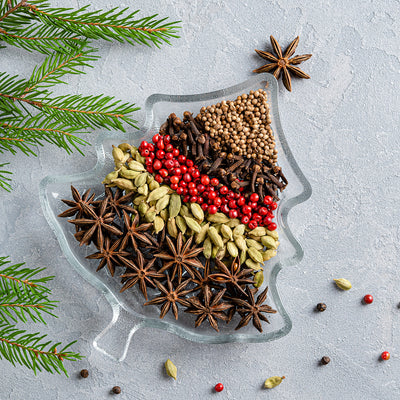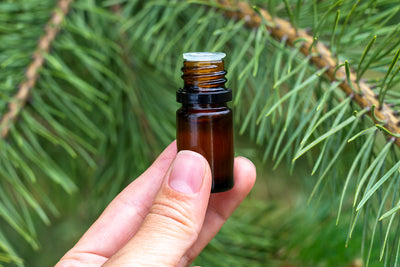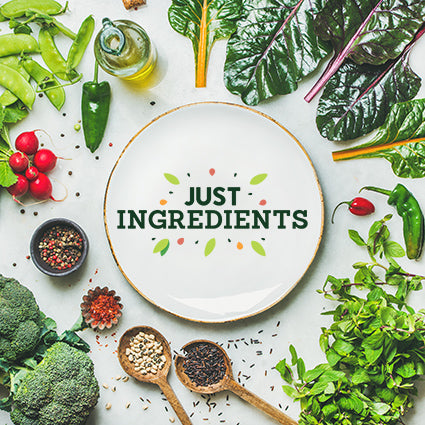Take Action This Earth Day 🌎
Earth Day is an annual event celebrated on 22nd April that encourages environmental protection. This years Earth Day focuses on protecting species around the world. From bees, elephants and insects to plants, trees and coral reefs. A vast number of animals and plants have gone extinct in recent centuries due to human activity, especially since the industrial revolution. Many others are in serious decline and threatened with extinction, which affects genetic variation and biodiversity, among other issues. It is estimated that humans have impacted 83% of Earth’s land surface, which has affected many ecosystems as well as the range in which specific species of wildlife used to exist.
Don't be disheartened by these facts and figures, use it as motivation to make a change, not just this Earth Day but everyday! Join us in supporting the practice of protecting the natural environment...
Plant A Tree 🌳

One of the ways Earth Day improves our shared environment is by planting trees across the globe. Since 2010, Earth Day has contributed to tens of millions of trees being planted. The Earth Day Network targets areas of the world most in need of reforestation, including some of the world’s poorest communities; and land degraded by logging, fires, drought, floods, hurricanes, and earthquakes. The benefits of trees are extraordinary. Trees provide food, energy and income to help communities achieve long-term economic and environmental sustainability. Trees also filter the air and help reverse the impacts of climate change. In just one year, a mature leafy tree produces as much oxygen as 10 people inhale!
Clean Up Your Town/City 🗑️
You'd be surprised just how much picking up litter can have a positive impact on the species that share the same area of land as yourself. (Not to mention it makes your surroundings more pleasant). Go on a rubbish walk once a week armed with a bag and fill it with any litter you come across. Mainly focus on plastics- whenever you see it, especially in ponds, streams, rivers, beaches, when possible and safe to do so, retrieve it. Participate in organised clean-up activities as much as you can. If there isn't one in your neighbourhood, why not start your own and get the community involved? Let's clean up our communities this Earth Day!
Reduce Plastic Use ♻️
Earth Day is also focusing on fundamentally changing human attitude and behaviour about plastics and catalysing a significant reduction in plastic pollution. From poisoning and injuring marine life to disrupting human hormones, from littering our beaches and landscapes to clogging our waste streams and landfills, the exponential growth of plastics is now threatening the survival of our planet.
The good news concerning plastics is that there are many things you can do about the problem.
🍌 When at the supermarket, choose loose fruit and veg and avoid plastic packaging where you can.
🧼 Purchase shampoo bars instead of plastic bottled shampoos.
🪥 Swap your plastic toothbrush for a bamboo toothbrush.
🛍️ Use reusable bags as apposed to plastic bags.
🥤 Refuse plastic straws, you can now purchase reusable metal straws instead.
🧴 Consider changing the way you wash your clothing to reduce the number of micro-fibres that are released. There are also bags and other devices you can use in your washing machine to collect the fibres.
🗑️ Prevent the creation of micro-plastics by being careful not to toss plastic products in water ways, beaches or open spaces.
🧂 Look up products on the internet and choose not to buy products containing micro-beads. Choose products that have natural exfoliators instead. Or make your own exfoliator using salt or sugar.
🌱 Consider purchasing items made of natural fibres, when possible.
🗑️ Do not wash off lint from your dryer down the drain. Dispose of it in the bin.
It is important to only consume what you need, especially when it comes to plastics. Many of the most commonly disposed of plastic products have viable alternatives. Always ask yourself if you can get the same product without consuming plastic before you buy something.
Sign Petitions ✍️
Signing petitions is a good first step to using your voice and making it heard. Let people know how you feel regarding environmental issues.
Sign the Earth Day petition and let world leaders and governments know that you wish to ban single use plastics. Find the petition here.
Plant Wildlife Friendly Plants 🌼
It's not just bees that you want to attract to your garden, many species of butterflies, bats, birds, moths, flies and even mammals are also pollinators, and they're all essential to a healthy ecosystem. By using pollinator-friendly plants and techniques, gardeners can help prevent the decline in pollinator populations. If every homeowner with a garden took steps to increase food and habitat for pollinators we would add tens of thousands of acres for pollinators to call home! Different pollinators are active at different times of year, so include a variety of plants that bloom from early spring through late fall. To attract the full spectrum of pollinators, choose plants of various heights, including flowering trees and shrubs, and those with a range of flower shapes and sizes.
- Alyssum
- Agastache (anise hyssop)
- Asclepias (butterfly weed)
- Aster
- Echinacea (coneflower)
- Geranium (cranesbill)
- Monarda (bee balm)
- Papaver (poppies)
- Rudbeckia (black-eyed Susan)
- Trifolium (clover)
Avoid using pesticides when gardening and take note that bees find blue, purple and yellow flowers most appealing.
Choose Organic 👩🌾
Organic always means fewer pesticides and reduced pollution! The UK government has even said that organic farming is better for wildlife. This is due to the fact farmers don't use herbicides at all and fungicides and insecticides are severely restricted. This is good news for the birds and bees that live on organic farms which are havens for wildlife and provide homes for bees, birds and butterflies.
On average, plant, insect and bird life is 50% more abundant on organic farms and are also home to 30% more species on average which proves organic farming encourages wildlife. No system of farming does more to reduce greenhouse gas emissions from agriculture and protect natural resources. When it comes to the environment, research published in the British Journal of Nutrition found significant differences between organic and non-organic farming.
Find our extensive range of organic ingredients here.
Choosing Plant-Based Options 🌱
Cutting down on the consumption of meat and dairy is one of the biggest ways to reduce your impact on the environment. With veganism on the rise it's easier than ever to get your hands on a plethora of vegan options. More than 80% of farmland is used for livestock which creates a huge quantity of air pollution, water use and greenhouse gas emissions. Beef results in up to 105kg of greenhouse gases per 100g of meat, while tofu produces less than 3.5kg.
Explore our range of vegan recipes here.
Let us know how you've reduced your impact on the natural environment by tweeting us @JustIngredients #EarthDay




